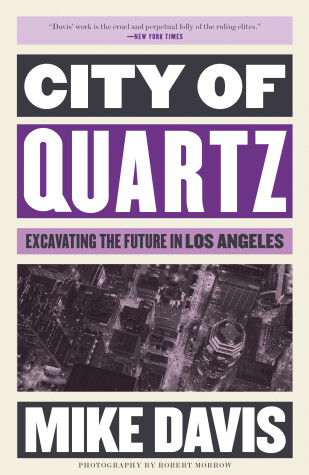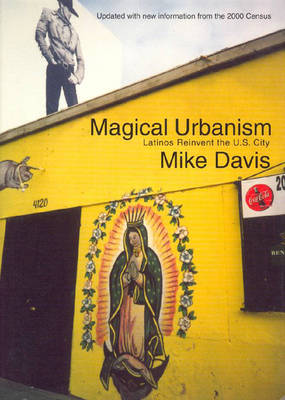Haymarket
3 total works
Mike Davis's exegesis attempts to answer the question: Why has the world's most industrially advanced nation never spawned a mass party of the working class? A documentation of the new economic and political forces ranged against us on both sides of the Atlantic.
This new edition of the visionary social history of Los Angeles is “as central to the L.A. canon as anything that . . . Joan Didion wrote in the seventies” (New Yorker)
No metropolis has been more loved or more hated. To its official boosters, “Los Angeles brings it all together.” To detractors, L.A. is a sunlit mortuary where “you can rot without feeling it.” To Mike Davis, the author of this fiercely elegant and wide- ranging work of social history, Los Angeles is both utopia and dystopia, a place where the last Joshua trees are being plowed under to make room for model communities in the desert, where the rich have hired their own police to fend off street gangs, as well as armed Beirut militias.
In City of Quartz, Davis reconstructs L.A.’s shadow history and dissects its ethereal economy. He tells us who has the power and how they hold on to it. He gives us a city of Dickensian extremes, Pynchonesque conspiracies, and a desperation straight out of Nathaniel West—a city in which we may glimpse our own future mirrored with terrifying clarity. In this new edition, Davis provides a dazzling update on the city’s current status.
No metropolis has been more loved or more hated. To its official boosters, “Los Angeles brings it all together.” To detractors, L.A. is a sunlit mortuary where “you can rot without feeling it.” To Mike Davis, the author of this fiercely elegant and wide- ranging work of social history, Los Angeles is both utopia and dystopia, a place where the last Joshua trees are being plowed under to make room for model communities in the desert, where the rich have hired their own police to fend off street gangs, as well as armed Beirut militias.
In City of Quartz, Davis reconstructs L.A.’s shadow history and dissects its ethereal economy. He tells us who has the power and how they hold on to it. He gives us a city of Dickensian extremes, Pynchonesque conspiracies, and a desperation straight out of Nathaniel West—a city in which we may glimpse our own future mirrored with terrifying clarity. In this new edition, Davis provides a dazzling update on the city’s current status.
A fascinating account of the Latinization of the US urban landscape, "Magical Urbanism" forcefully shows that this is a demographic and cultural revolution with extraordinary implications. Davis focuses on the great drama of how Latinos are attempting to translate their urban demographic ascendancy into effective social power. Pundits are now unanimous that Spanish-surname voters are the sleeping giant of US politics, yet electoral mobilization alone is unlikely to redress the increasing income and opportunity gaps between urban Latinos and suburban non-Hispanic whites. Therefore, in Los Angeles and elsewhere, the militant struggles of Latino workers and students are reinventing the American left. Fully updated throughout, and with new chapters on the antiimmigrant backlash, the impact of climate change on the urban Southwest, and the exploding counter-migration of Anglos to Mexico, "Magical Urbanism" is essential reading for anyone who wants to grasp the future of urban America.


